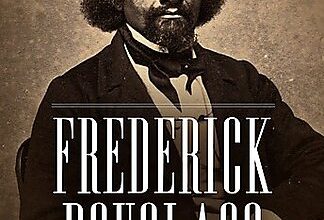Senators Tacitly Admit That Prohibition Benefits Mexican Drug Cartels

Senator Bill Cassidy (R‑LA), joined by four senate colleagues, two Democrats, and two Republicans, sent a letter to U.S. Secretary of State Antony Blinken yesterday, expressing their concern that the Mexican drug cartels have moved into the cigarette smuggling business. The letter stated:
In 2015, the State Department cited activity by terrorist groups, and criminal networks who have used tobacco trafficking operations to finance other crimes, including “money laundering, bulk cash smuggling, and the trafficking in humans, weapons, drugs, antiquities, diamonds, and counterfeit goods.”
Particularly noteworthy, the senators write:
While the primary threat from Mexican TCOs [transnational criminal organizations] come from trafficking in illicit drugs, these organizations have diversified their activities in response to changing conditions. As it has become easier to sell marijuana products in the U.S., Mexican TCOs have prioritized trafficking fentanyl and other synthetic drugs that are cheaper to manufacture, easier to transport, and generate more profit. (Emphasis added)
The letter acknowledges that marijuana, now legally sold in 23 states and the District of Columbia, is no longer as profitable for cartels to sell in the underground market.
Now, new money‐making opportunities are arising for the cartels as more states and municipalities ramp up cigarette taxes and some ban menthol cigarettes (which disproportionately harms the African‐American community), seeking to eradicate cigarette smoking.
The senators understand the connection. In their letter, they ask Secretary Blinken:
Does your department have an assessment as to whether any domestic efforts to limit tobacco usage—either enacted or proposed—provide an opportunity for transnational criminal organizations to further their illicit trafficking operations?
The Mexican cartels enjoy prohibition and would oppose efforts to end it. Economist Bruce Yandle, in 1981, developed a theory to explain the demand for and supply of social regulation that he called “Bootleggers and Baptists.” In this brief video, he explained how coalitions form among people who don’t necessarily meet and organize, may have wildly divergent viewpoints, but desire the same outcome. The theory’s name refers to the “unholy” alliance between bootleggers and the temperance movement, who both supported alcohol prohibition.
The senators concluded their letter by urging Secretary Blinken and the Department of State to continue “action to address these threats.”
The letter tacitly acknowledges that prohibition is the problem. First, it mentions that, as marijuana has been legalized in many states, the cartels have shifted to fentanyl and other illicit drugs. Then the letter implies that domestic prohibitionist tobacco policies incentivize the cartels to enter the cigarette smuggling business.
Apparently, the senators get it. Their letter would have been more effective if it explicitly stated the obvious.





